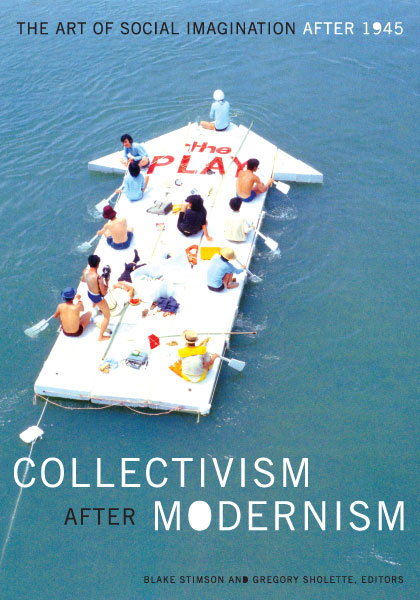Francis Hunger (ed.): How I Learned to Love RFID (2006)
Filed under report | Tags: · biometrics, rfid

Reader / documentation from the workshops by HMKV Dortmund and RIXC Riga, 20-22 May 2006.
With texts and images by Dorothea Carls, Jasmina Tesanovic, Rob van Kranenburg, Bruce Sterling, Oliver Leistert, Timo Arnall, Franziska Nori, Inke Arns, Francis Hunger.
“The series of lectures brings together approaches and projects that artistically and critically deal with Radio Frequency Identification (RFID) Technology – a technology that is significantly being developed and advanced by companies and research institutes in Dortmund. This technology which at first glance seems to be a simple further development of the bar code (well known from the supermarket) is much more powerful that the good old bar code technology. RFID tags are passive radio transmitters, which upon receiving a minor wireless energy impulse are sending back the information stored on their memory. Today, this information can be read already at a distance of six meters – without the process getting noticed. In addition, with its unique identification numbering system, this technology will allow for a precise identification of every object worldwide. What will it be like to live in a world where all the objects constantly will be talking to each other?”
Publisher HMKV, Dortmund, 2006
[18] pages
More info (includes audio recordings)
PDF, PDF (updated on 2017-9-8)
Comment (0)Francis Hunger (ed.): Satellite Voyeurism Reader (2008)
Filed under book | Tags: · art, data visualisation, gps

The Satellite Voyeurism workshop addressed questions of the production and consumption of satellite imagery. Discussing the success of Google Earth and similar software, artists aimed to create their “own” satellite images. The participants were provided with the hands-on experience to receive satellite images from the NOAA satellites, which is documented in this publication.
With contributions by Marc Böhlen, Regine Debatty, Alejo Duque, Thilo Elsner, Martin Heckmann, Francis Hunger, Katherine Marmor, Manuel Schmalstieg a.o.
Publisher Hartware MedienKunstVerein, 2008
48 pages
PDF (High Res, 18 MB)
PDF (Low Res, 4 MB)
Blake Stimson, Gregory Sholette (eds.): Collectivism after Modernism: The Art of Social Imagination after 1945 (2007)
Filed under book | Tags: · collaboration, collective art, participation, situationists, video art

“The desire to speak in a collective voice has long fueled social imagination and artistic production. Prior to the Second World War, artists understood collectivization as an expression of the promise or failure of industrial and political modernity envisioned as a mass phenomenon. After the war, artists moved beyond the old ideal of progress by tying the radicalism of their political dreams to the free play of differences.
Organized around a series of case studies spanning the globe from Europe, Japan, and the United States to Africa, Cuba, and Mexico, Collectivism after Modernism covers such renowned collectives as the Guerrilla Girls and the Yes Men, as well as lesser-known groups. Contributors explore the ways in which collectives function within cultural norms, social conventions, and corporate or state-sanctioned art. They examine the impact of new technologies on artistic practice, the emergence of networked group identity, and the common characteristic of collective production to blur the typical separations between artists, activists, service workers, and communities in need.
Together, these essays demonstrate that collectivism survives as an influential and increasingly visible artistic practice despite the art world’s star system of individuality. Collectivism after Modernism provides the historical understanding necessary for thinking through postmodern collective practice, now and into the future.”
Contributors: Irina Aristarkhova, Jesse Drew, Okwui Enwezor, Rubén Gallo, Chris Gilbert, Brian Holmes, Alan Moore, Jelena Stojanovi´c, Reiko Tomii, Rachel Weiss.
Publisher University of Minnesota Press, 2007
ISBN 0816644624, 9780816644629
xviii+312 pages
Key terms: Art & Language, collectivism, unitary urbanism, Akasegawa Genpei, video art, detournement, conceptual art, Asger Jorn, Fluxus, ABTV, Ernesto Leal, Situationist International, Guy Debord, Havana, Glexis Novoa, cold war, Art Workers Coalition, avant-garde, Cuba, Gutai
PDF (9 MB, updated on 2019-12-18)
Comments (2)
